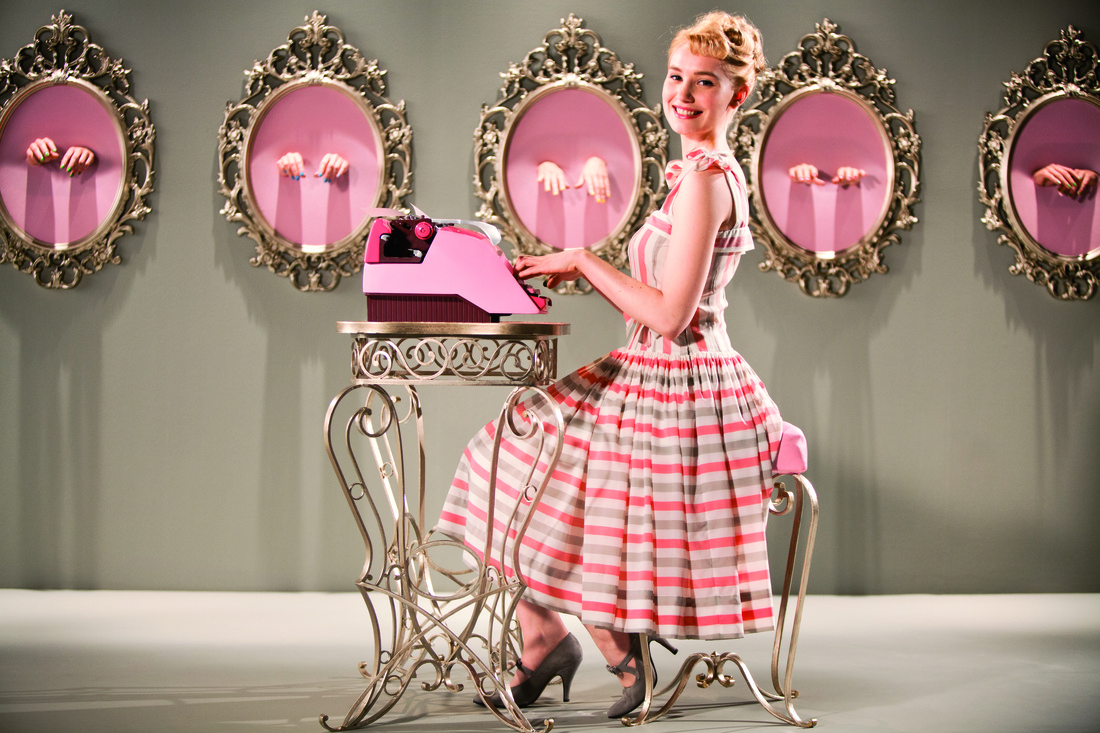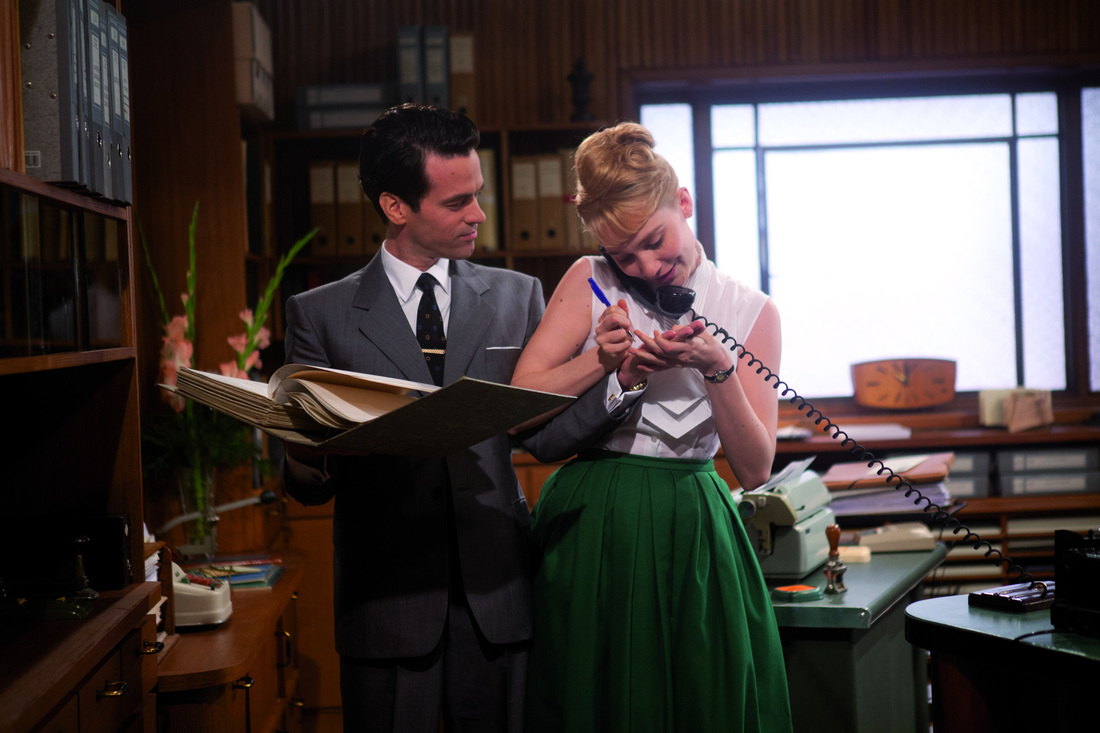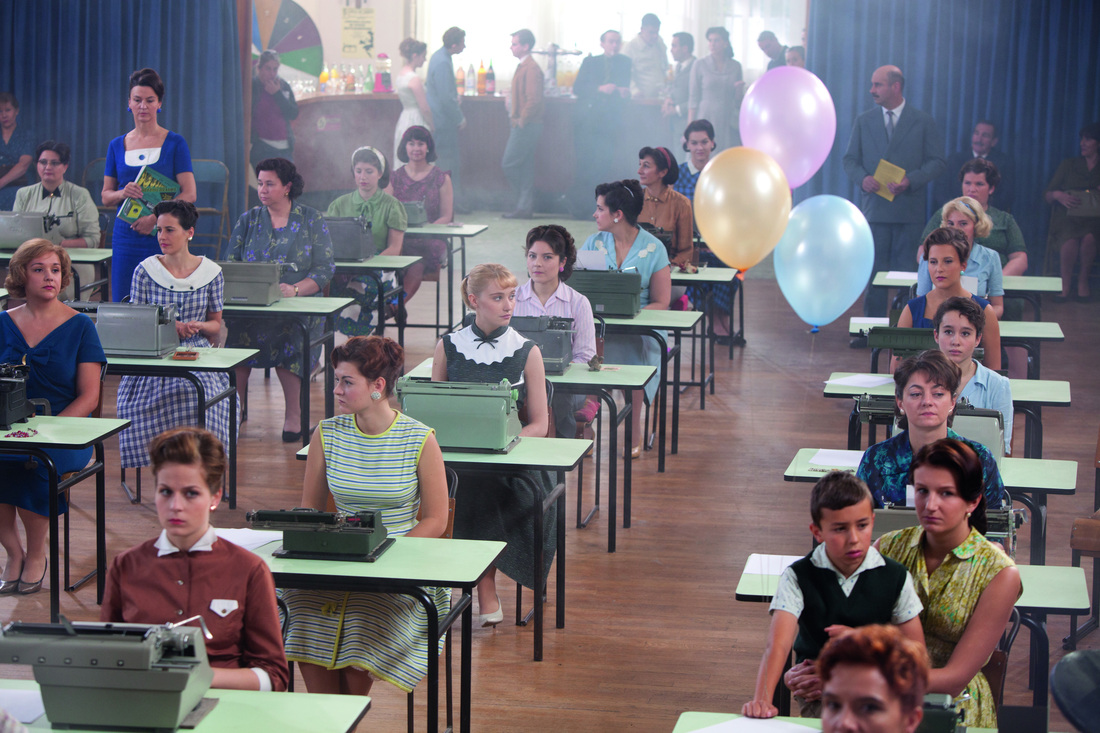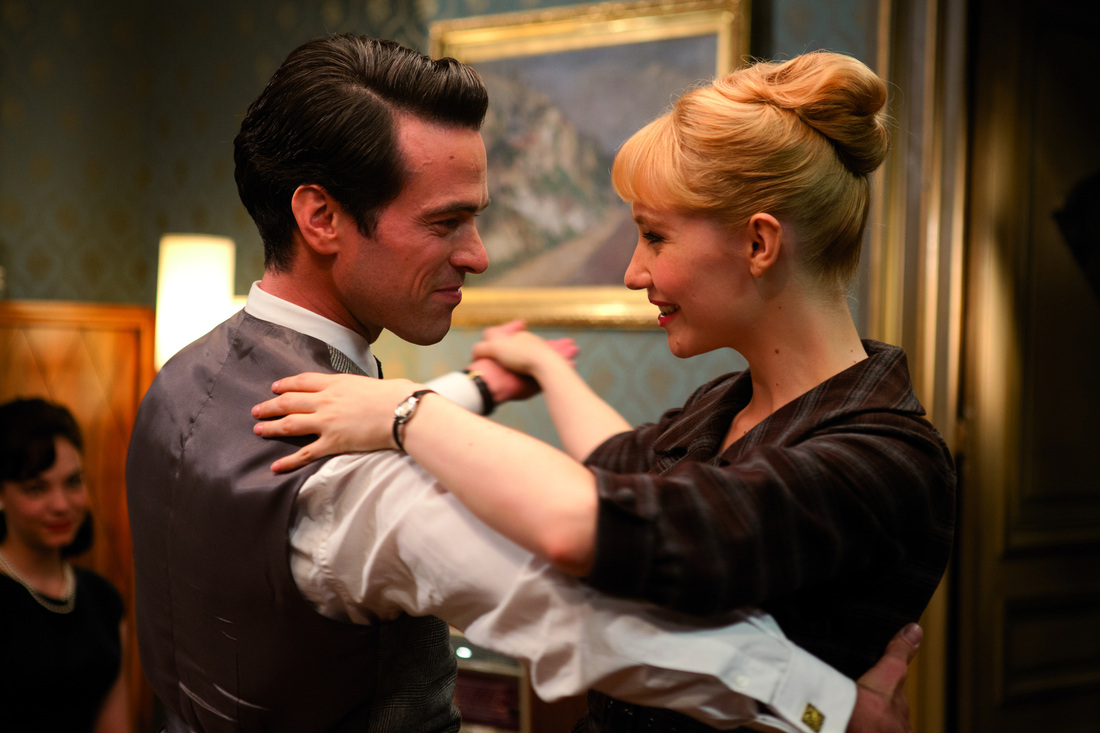|
How entertaining? ★★☆☆☆
Thought provoking? ★☆☆☆☆ 7 April 2013
This article is a review of POPULAIRE.
|
“Only a law could stop me, pumpkin,” Louis Échard
Riding the zeitgeist. Epitomising televisual sophistication, élan and gripping characterisation/storytelling. You may wonder why MAD MEN has not had more imitators, as is so often the case when success is achieved. Probably sitting down in front of a blank piece of paper to create your own classy and sexy take on gender politics must seem daunting. The team behind POPULAIRE have more chutzpah than skills unfortunately. The late 1950s world of inequality is brushed aside in favour of dubious rom-com froth; saved from complete ignobility by the savvy casting of two extremely winsome leads: Déborah François and Romain Duris.
Riding the zeitgeist. Epitomising televisual sophistication, élan and gripping characterisation/storytelling. You may wonder why MAD MEN has not had more imitators, as is so often the case when success is achieved. Probably sitting down in front of a blank piece of paper to create your own classy and sexy take on gender politics must seem daunting. The team behind POPULAIRE have more chutzpah than skills unfortunately. The late 1950s world of inequality is brushed aside in favour of dubious rom-com froth; saved from complete ignobility by the savvy casting of two extremely winsome leads: Déborah François and Romain Duris.
|
|
|
François’ Rose Pamphyle dreams of being a secretary, as do many women in the film. There is some half-baked line about her desiring a man who treats her with equality. The movie doesn’t reflect that sentiment. It looks like Rose and supporting female lead, Marie Taylor (Bérénice Bejo), are happy to play second fiddle to love, to be an assistant and a house wife. The two women are brought into the same circle by Duris’ Louis Échard, the boss of his inherited insurance business, Échard & Sons. Rose gets the gig as his secretary because of her prodigious talent at the typewriter. The first time we meet her, she is sneaking downstairs into her father’s shop at night to practice on the machine in the window.
Rose is shown to be a klutz, knocking things over in a non-humorous way. We are not in Buster Keaton sublime slapstick territory. Duris and François are extremely likeable performers, and on their own prove charming, especially the latter. However, there is not much chemistry, and the tension of them getting together is absent, as every romantic-comedy cliché is machine-gunned onto the screen. Even as POPULAIRE unusually becomes a pseudo-sports flick, that subgenre is massacred too by the obvious and clunky. Louis decides to enter Rose into the ‘Regional Speed-typing Championship’, and becomes THE KARATE KID’s Mr Miyagi, obsessively training his protégé to win. The set-up is contrived, and the 1950s stylings soon look limited, as the budget can’t seem to stretch to beyond a few locations.
Then there are the subplots. Louis is still in love with Marie, even though she is married to his best bud. Rose has a frosty relationship with her emotional cripple father. Louis has a clumsy Second World War backstory too. I can imagine the writers sitting down in front of blackboard and just checking off a list of stuff to cover, rather than creating believable, complicated characters tied to a dramatic and romantic plot. It’s a real pity that the talents of François, Duris and Bejo were not deployed more effectively.







